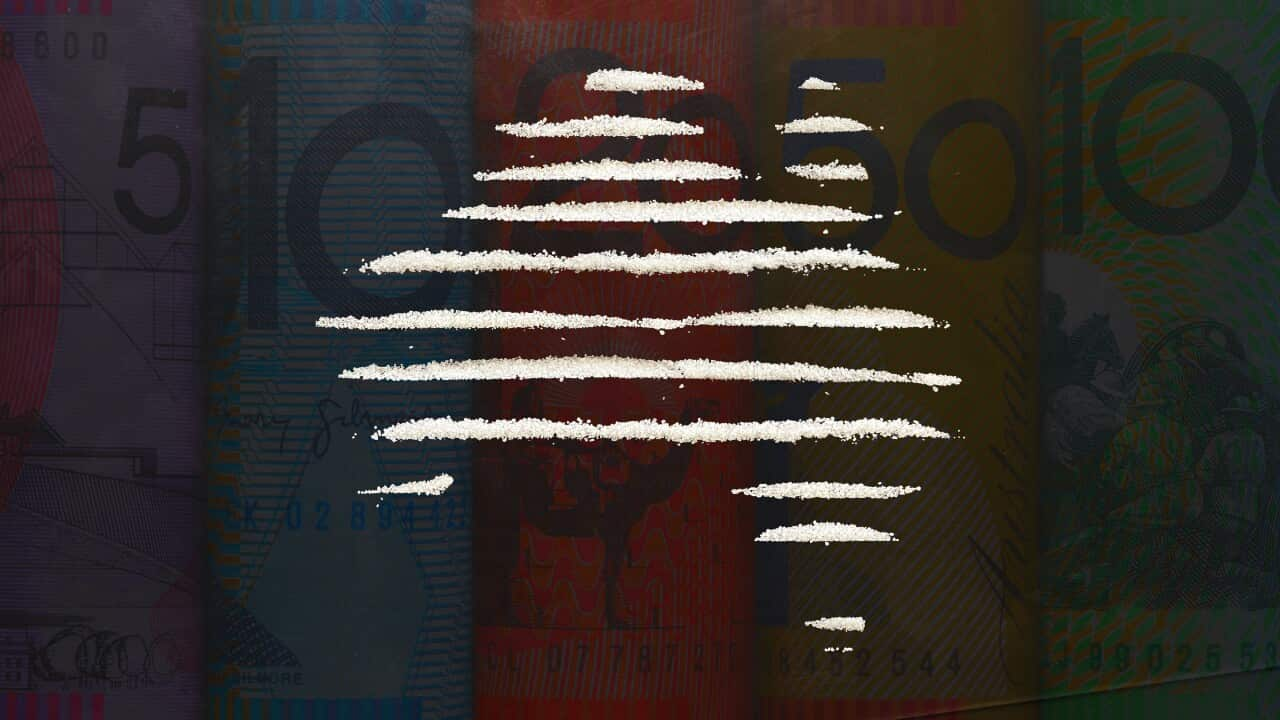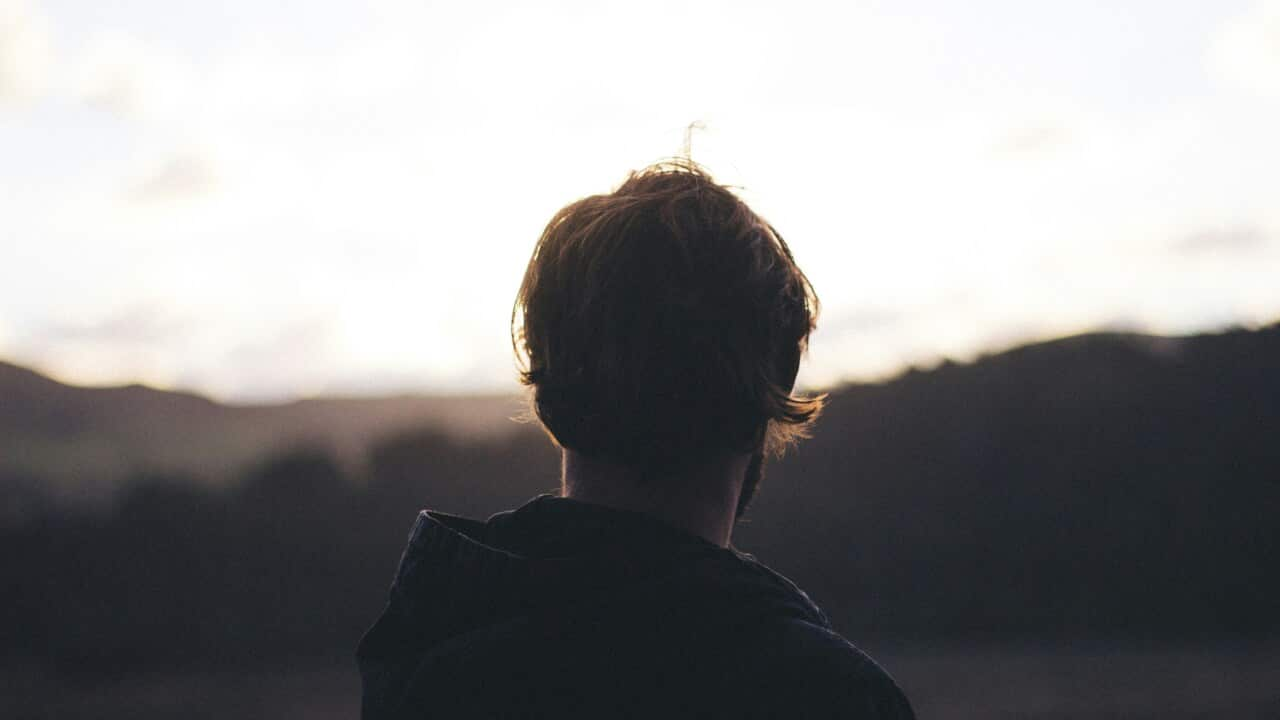Brenda was only five days into living in her new Gold Coast rental with her six dogs (yes, six) when something started to feel off.
She said she started feeling itchy, developed a red rash and felt "dopey". She would soon discover her home was exposing her and her dogs to methamphetamine (meth).
"I didn't know that meth affected people who never used it, or [about the] damage meth does to a house after [the people] left," Brenda said.
Methamphetamine vapours can absorb into walls and furniture of a home — a 2023 Flinders University study found meth residue discovered in Queensland homes was detectable for months, and in some cases years, after production or use had stopped.
Exposure to meth via a contaminated home can cause sleep issues, respiratory effects, skin and eye effects, and headaches, according to a 2020 report by the International Journal of Environmental Research and Public Health. The report found long-term exposure could also cause anxiety and depression.
Brenda had gone to the medical centre twice in two weeks to address the "itchy red rash" and said her dogs were also ill — "they wouldn't eat much".
The doctor said the rash was likely caused by meth contamination; Brenda recalls.

Australia's estimated methamphetamine usage has fluctuated since 2016 in Australia. Source: Supplied / Australian Criminal Intelligence Commission
"It came back with a high reading — then the cleaners had to come in and really scrub it down to the plaster and all the walls," Brenda said.
She moved out for six weeks while the home was decontaminated. The cost was covered by insurance.
The possibility of meth exposure in a rental crisis
Meth, which is illegal, is one of the most popular drugs in Australia.
More than 10.5 tonnes of methamphetamine was consumed in Australia in the year to August 2023, according to the Australian Criminal Intelligence Commission's (ACIC) latest National Wastewater Drug Monitoring Program report. This was up 17 per cent on the year before.
Despite an increase in meth use over five years (up from 8.3 tonnes in 2018), meth lab detection across Australia has declined over 10 years.
ACIC's 2021 Illicit Drug Data Report showed that of the 284 national clandestine lab detections in 2020-21, Victoria accounted for the greatest proportion (68), followed closely by Queensland (66).
, with a national vacancy rate of 1.1 per cent (according to SQM Research) and testing for meth contamination is an uncommon request by renters. Plus, the requirements for owners and agents to disclose whether a property was used to produce methamphetamine differs across jurisdictions. But more on that later.

It can cost several thousands to clean a home that was contaminated by meth. Source: SBS
"I've definitely seen a rise, and I don't know if that's just contributed to people testing now or not, but it kind of went from nothing to a fair few," he told The Feed.
"When we are selling the rental properties that are not quite as flash or haven't been rented to a straight-up family, there seems to be a big uptick in the positive tests," he says.
Adamson said a home in the "affluent" suburb of Gwelup was found to be contaminated before he sold it, and that he recently sold a contaminated home across from a school. Potential buyers were told of the contamination.
A 2021 report by WA Health specifically looking into houses used by meth smokers states that about 2.7 per cent of houses in Western Australia may have been contaminated over the five years to 2021, which "would place more than 75,000 individuals at risk of potential third-hand exposure".
"[One of the] ones that we sold … as far as I'm aware, [they] were actually cooking meth in the property, however, there's been a few properties where people would obviously just smoke meth in them, which pings the report (shows up as positive for meth contamination)," Adamson said.
Is it necessary to test your home or rental for meth?
The health effects associated with living in a home previously used to produce meth can include headaches, red and/or itchy eyes, skin irritations, difficulty breathing, insomnia, and behavioural changes, but the research around the risks of living in a home where meth has been used (and not produced) is less clear.
WA Health said in a statement to The Feed that surface residue from smoking meth is likely to be at a low level compared to manufacturing, but with "heavy drug use" surface residue testing may be conducted by authorities, in particular if "vulnerable at-risk persons", such as kids, are in the home.
"Surface residue testing is recommended where there is knowledge or reasonable suspicion of drug manufacturing (clandestine laboratory) at residential premises," the statement read.
Exposure to meth isn't only a risk if the home was used as a clandestine laboratory, according to Emma Kuhn, an associate lecturer in Environmental Health at Flinders University. Kuhn has focused her research on health effects from living in homes where meth is used rather than manufactured.
She told The Feed it is difficult to distinguish whether a home had been used as a meth lab or by a heavy user — as above a certain level, testing deems a home "manufacture".
"You can't really determine manufacture versus use based on the concentration present on a wall alone — which I think underpins a lot of that research [which] is based on a certain concentration."

Emma Kuhn has conducted extensive research surrounding the adverse health affects caused by living in methamphetamine contaminated homes. Source: SBS
She said the "trigger" for most people is when they start experiencing health effects, such as insomnia, headaches, itchy eyes or mood swings.
Kuhn encourages homeowners and renters to test their properties before moving in — "much like a building inspection" — but recognises a "perfect storm" has been created out of a difficult rental market where people are unable to afford the luxury of testing.
"I fully acknowledge that it's really difficult to find a property, let alone if you were concerned about something like this and having that issue raised with a real estate agent or owner before you were even able to get the property," Kuhn said.
When it comes to testing rentals, the NSW Tenants Union said in a statement to The Feed there had been previous issues with companies promoting testing without sufficient need.
"These companies have a clear incentive to both find contamination and raise the concern for health impacts in order to further the growth of the industry, and in particular to promote the idea that general testing is required," the statement said.
It said that in NSW, there are no penalties against landlords or agents for failing to mention disclosure requirements to renters and buyers — and often could be unaware of the property's history.

According to the Australian Criminal Intelligence Commission's latest National Wastewater Drug Monitoring Program report, more than 10.5 tonnes of methamphetamine was consumed in the year to August 2023, up 17 per cent from the year before. Source: Getty / gorodenkoff
Who is responsible for the cleaning and can the testing be trusted?
The cost of meth tests in Australia varies widely — DIY kits are available for around $50 whereas in-person tests can cost hundreds of dollars.
Many businesses that provide tests also offer cleaning services for properties with positive results — a potential conflict of interest according to a study published in the International Journal of Environmental Research which assessed testing and decontaminating practices in Australia. Cleaning services can cost thousands of dollars.
Because there is no legislation or regulation of meth testing or decontamination in Australia, there is no mandatory training or standardised techniques of cleaning.

It's believed that about 2.7 per cent of houses in Western Australia may have been contaminated by methamphetamine over the five years to 2021. Source: Getty / Epiximages
"Ultimately, the industry is composed of business owners that mainly want to be perceived as an asset and acknowledged that they are working to improve public health," the report said.
Do real estate agents need to tell renters if a property was used as a meth lab?
It depends on where you live. Agents must disclose 'material facts' about a property — but what that includes varies between each state or territory.
The Real Estate Institute of Australia said in a statement to The Feed that managers must ensure properties are fit for purpose and make prompt interventions by conducting "routine inspections and [identifying] any criminal damage".
Victoria, the ACT and NSW have the most robust laws regarding "material facts" that buyers and renters should be told about. In 2020, Victoria included murder and meth labs in the material facts that need to be disclosed — and made it an offence not to disclose this information.

Meth usage across Australia is on the rise despite fewer clan lab detections over a 10 year period to 2021. Source: SBS
In the Northern Territory and Tasmania, vendors are not required by law to disclose a minimum set of specified information about the property to the buyer - though agents must act under "common law", which includes "acting in good faith in the principal’s interest".
They must also "advise buyers of adverse title restrictions on use of the property", which could include a former meth lab property.
In 2019, Western Australia considered mandatory methamphetamine testing for rental homes, but this never eventuated.
Brenda eventually moved back into her property and has happily lived there since, but said she believes there should be increased awareness of potential unknown exposure.
"I think there needs to be more understanding on how [meth] affects other people that don't smoke meth around them and their families."












